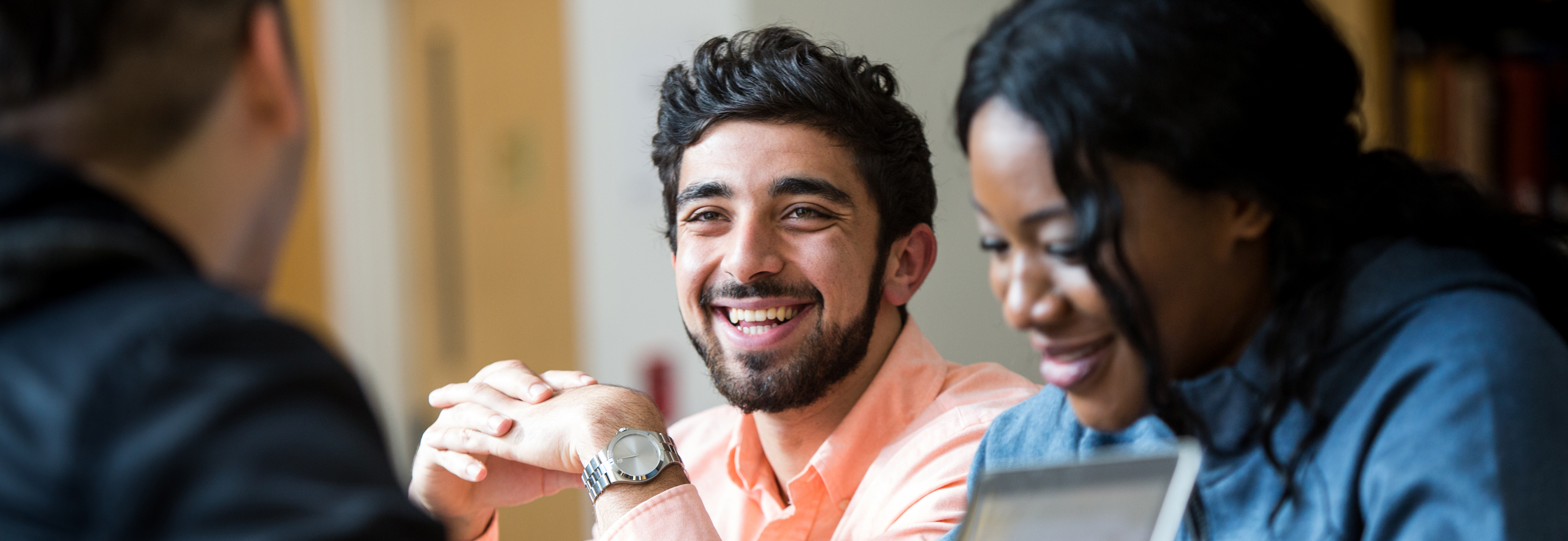Education

UCSF ImmunoX Graduate Program
The UCSF ImmunoX Graduate Program in Immunology prepares pre-doctoral scholars for a career in immunology and its rapidly expanding community of partner sciences. The Program is a specialty curriculum designed to be to be integrated with UCSF’s degree-awarding graduate programs.
The Program’s courses emphasize modern approaches for understanding the molecular mechanisms of cell, organ, and immune system function, as well as integrative approaches for defining the physiological importance of these mechanisms. The core attribute of the program is advanced in-lab research training and mentorship by ImmunoX faculty. Students in the Program also participate in ImmunoX community activities, including the weekly student/faculty ImmunoX Journal Club, a weekly seminar series comprised of world-class immunologists from around the U.S and overseas, monthly program social events, and the annual ImmunoRetreat.
Students interested in the ImmunoX Graduate Program in Immunology are encouraged to begin the process by applying to a UCSF graduate program that suits their interests. The most generally applicable to the immunology curriculum is the UCSF Biomedical Sciences (BMS) program. A large majority of ImmunoX students and faculty are affiliated with the BMS program, but ImmunoX welcomes students and faculty from all UCSF programs, including Tetrad, DSCB, iPQB and others.
In summary, admittance and graduation as an ImmunoX Graduate Program in Immunology student comes down to four simple requirements:
- Students must be accepted into and ultimately meet all of the requirements of graduation for one of UCSF’s degree granting graduate programs. Please direct all program admissions questions to these respective programs.
- Students must participate in research in the lab of an ImmunoX Faculty PI (see list here). Graduate students select their research project generally at the end of the first year after completing three laboratory rotations.
- Students must participate in our courses and events, including, but not limited to, Micro 204, Spring Minicourses, journal club, seminar series, and the retreat.
- Students should have an impactful first author paper submitted within the field of immunology before graduation.
Research
Graduate students choose a lab for their thesis research at the end of the first year of study after completing three laboratory rotations. See list of ImmunoX faculty here. Therefore, most students formally become members of the ImmunoX Graduate Program in Immunology when they join an ImmunoX faculty member’s lab at the end of their first year. However, interested first year students are invited to participate in ImmunoX events, such as the UCSF ImmunoX/UCB Immunology Retreat, as soon as they arrive at UCSF.
Curriculum
Taken in Fall of First or Second Year. This is the core course for the ImmunoX Graduate Program in Immunology. Each of 18 lectures will introduce a different aspect of immunology at a level accessible to students from all programs. Additional weekly small-group sessions will provide students with the opportunity to discuss selected landmark papers relevant to the week's lectures in greater depth. Topics to be covered include mechanisms of immunoglobulin rearrangements, cell biology of antigen presentation to T cells and of lymphocyte trafficking, antigen and cytokine receptor structure and signal transduction mechanisms, regulation of lymphocyte development and lymphocyte activation, mechanisms of cell-mediated killing of infected and neoplastic cells, whole organism immune response to infection, and diseases of the immune system, including allergy, autoimmunity, and AIDS.
Taken in Spring of First or Second Year. ImmunoX participates in a collaborative effort with other UCSF graduate programs to offer a spring quarter curriculum designed around minicourses. These are smaller courses formatted as intensive, round-table discussions of current literature on specific topics. The quarter is divided into three modules of two to three weeks each with programs offering several minicourse choices per module. Students are expected to complete three minicourses during their first year, and may elect to take additional minicourses during subsequent years in the program.
Each year, ImmunoX professors Gabi Fragiadakis, Marina Sirota, and Matt Spitzer offer the Computational Immunology minicourse, along with a rotation of several different courses each year. Some examples of the other immunology-focused minicourses offered over the past years include:
- 2024
- Immune Cell Engineering (Justin Eyquem)
- 2023
- Tissue Immunology (Roberto Ricardo-Gonzalez)
- Babies, Bugs and the Immune System Science Communication (Tiffany Scharschmidta)
- 2022
- mRNA vaccines: How did they do that so quickly? (Mark Ansel)
- Tumor Immune Evasion (Robert Blelloch)
- 2021
- Advanced Topics on Unlocking Human Autoimmunity (Mark Anderson)
- Advanced Topics on Unlocking Human Autoimmunity (Mark Anderson)
Computational Immunology Emphasis
In addition to the core immunology curriculum, students pursuing the computational immunology emphasis will participate in courses and program activities that prepare them to apply and create computational solutions to answer immunological research questions. Students pursuing this path should plan to take either BMI 206: Statistical Methods of Bioinformatics (Fall) or BMI 203: Biocomputing Algorithms (Winter) by the end of their second year to form the foundation of their computational understanding. ImmunoX also offers an annual Computational Immunology minicourse, seminars and hackathons.
For information, please contact the Immunology Coordinator.
For incoming graduate students looking to demonstrate interest in pursuing the Computational Immunology Emphasis, please fill out this form.
Other Program Events
ImmunoX sponsors seminars, journal clubs, an annual retreat, and other community activities that foster collaboration and intellectual exchange among the diverse array of scientists conducting immunology and inflammation research at UCSF. A listing of all of these events can be found on our Events Page.



